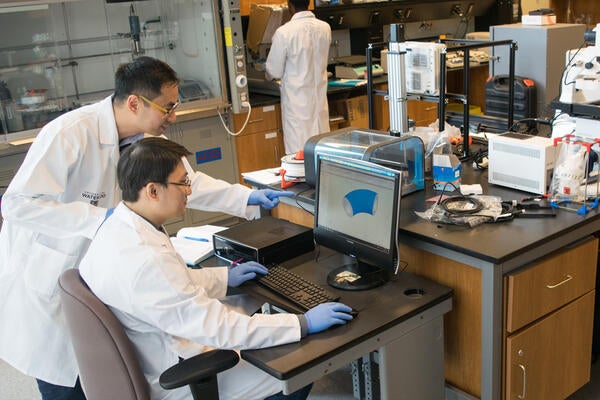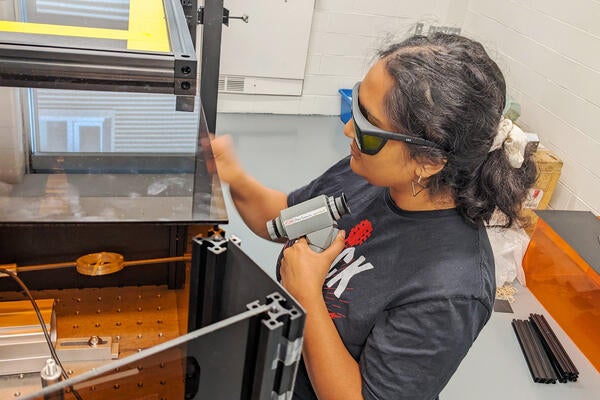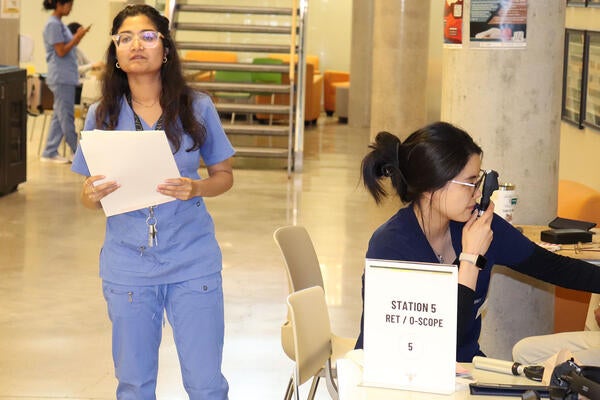
Waterloo offers new pharmacy degree
The University of Waterloo has launched its new and innovative Doctor of Pharmacy program, giving future pharmacists even more opportunity to meet Ontario's modern health-care needs

The University of Waterloo has launched its new and innovative Doctor of Pharmacy program, giving future pharmacists even more opportunity to meet Ontario's modern health-care needs
By Media RelationsThe University of Waterloo has launched its new and innovative Doctor of Pharmacy program, giving future pharmacists even more opportunity to meet Ontario's modern health-care needs.
Called PharmD, the new program replaces the previous entry-to-practice degree. It provides students with advanced clinical training to closely align with the recently expanded scope of practice for pharmacists across Canada, and prepares them for the direct patient care roles of today’s practitioners.
“We believe that the PharmD program at the University of Waterloo is second to none and will provide students with the foundation that they need to become medication therapy experts,” said Professor David Edwards, Hallman Director of the School of Pharmacy, and associate dean, Faculty of Science.
The program will also have an increased emphasis on interprofessional education, specifically directed toward pharmacists developing collaborative learning environments with physicians, nurses and other health professionals.
The School of Pharmacy at Waterloo is the only co-op pharmacy program in Canada and one of only two in North America.
“Waterloo Pharmacy students enter their clinical rotations with three years of co-op experience working in the pharmaceutical environment. This gives them the confidence and real-world problem-solving skills to be an active member of the health-care team from day one," said Professor Nancy Waite, associate director of practice-based education and professional outreach at Waterloo, and the Ontario College of Pharmacists Professor in Pharmacy Innovation.
The School of Pharmacy is organizing clinical rotations under the unique Community of Practice model that focuses on patient care in one region. It’s designed to accommodate site realities and needs, and help students become even more engaged in their local pharmacy community.
Students will spend 24 weeks in hospitals, long-term care facilities, community pharmacies, outpatient clinics and family health teams. They will be able to apply their knowledge to the care of patients with a wide range of acute and chronic diseases in these structured rotations. Professional pharmacists and other health-care professions, such as physicians and nurses, provide mentorship and feedback.

Read more
The Proteus Innovation Competition challenges teams across Ontario to pitch a commercialization plan for a novel Waterloo technology

Read more
Waterloo wins 2023 Gentec-EO Laser Lab Awards competition

Read more
Waterloo's Optometry Clinic partners with YAAACE for a first-hand experience in eye care and the University environment
The University of Waterloo acknowledges that much of our work takes place on the traditional territory of the Neutral, Anishinaabeg and Haudenosaunee peoples. Our main campus is situated on the Haldimand Tract, the land granted to the Six Nations that includes six miles on each side of the Grand River. Our active work toward reconciliation takes place across our campuses through research, learning, teaching, and community building, and is co-ordinated within the Office of Indigenous Relations.